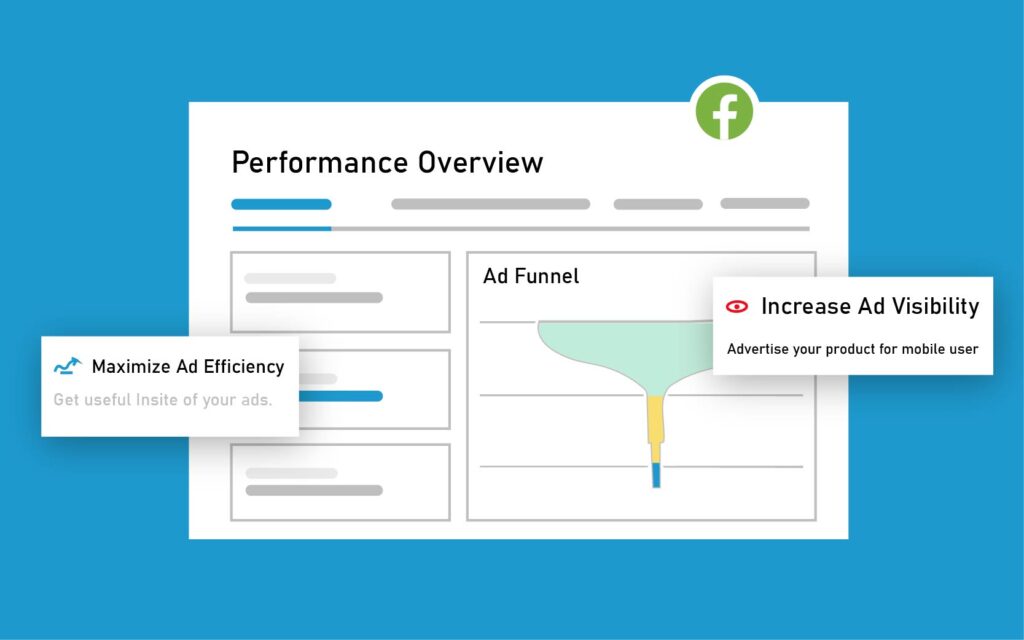
LinkedIn Client Hunting Course in Mohakhali
LinkedIn is more than just a platform for networking; it’s a powerful tool for finding

If you want my team to manage your good marketing for you, click here
Facebook serves as one of the most powerful platforms for digital marketing, and individuals looking to harness its potential can greatly benefit from a structured course. In Ramna, they can find an enriching Facebook Marketing Course designed to equip participants with practical skills and strategies for successful online campaigns. This guide will explore the key components of the course, including targeted advertising, content creation, and analytics, ensuring that attendees leave with a comprehensive understanding of effective Facebook marketing techniques. She or he will emerge better prepared to navigate the evolving digital landscape.
For marketers looking to enhance their online presence, understanding various Facebook marketing strategies is imperative. They can consider the following approaches:
Perceiving the right combination of these strategies can significantly boost one’s marketing efforts.
| Strategy Type | Description |
| Organic Marketing | Utilizing non-paid methods to attract followers and engage audiences. |
| Paid Advertising | Promoting content through sponsored placements on Facebook. |
| Content Marketing | Creating and distributing valuable content to attract and engage audiences. |
| Influencer Collaborations | Partnering with influential figures to promote products or services. |
| Community Building | Fostering a group with shared interests and active participation. |
Even without financial investment, organic marketing allows individuals and businesses to cultivate a loyal following on Facebook. They can achieve this through regular posts, engagement with their audience, sharing valuable content, and creating groups that resonate with their brand identity. The effectiveness of organic marketing relies on authenticity and consistency in messaging.
Advertising on Facebook provides targeted campaigns that can reach specific demographics and interests. They can utilize various formats, including images, videos, and carousels, to grab attention and increase conversions.
Types of paid advertising on Facebook include boosted posts, which enhance organic content visibility, and dedicated ad campaigns designed to fulfill specific marketing goals such as lead generation and brand awareness. Facebook’s robust targeting options enable marketers to define audience segments precisely, optimizing their ad spend and maximizing the impact of their promotional efforts.
One of the most important aspects of Facebook marketing is the foundation of a solid strategy. She must focus on key factors to drive success, including:
Thou must integrate these elements into a cohesive marketing plan to achieve desired outcomes.
Success in Facebook marketing heavily relies on a deep understanding of the target audience. They should conduct thorough research to identify demographics, preferences, and behaviors, enabling them to tailor content that resonates. This insight allows for more effective campaign strategies, maximizing engagement and reach.
To achieve the best results on Facebook, she should focus on optimizing her content strategy. This involves creating diverse content types such as videos, images, and polls that encourage interaction and keep the audience engaged. Utilizing storytelling techniques enhances relatability and facilitates a deeper connection with followers.
Understanding the importance of measuring content performance is key; she can analyze which types of content generate the most interaction or shares. By adjusting the strategy based on these insights, he or she can fine-tune posting schedules, image choices, and messaging to better align with audience interests and preferences. This continuous improvement leads to sustained engagement and long-term success.

Some marketers find success on Facebook by following a systematic approach. By breaking the strategy into manageable steps, they are able to engage their audience effectively. Below is a simple guide to navigate the process.
| Step | Description |
| 1 | Setting Up a Business Page |
| 2 | Creating Engaging Content |
| 3 | Running Ads |
| 4 | Analyzing Results |
With a properly set up business page, he or she can establish a professional presence on Facebook. This involves selecting the right category, filling in pertinent details, adding a profile picture, and creating a cover photo that resonates with the brand identity. A well-optimized page can serve as an effective platform for marketing efforts.
An engaging content strategy can significantly enhance audience interaction. By sharing relevant information, visuals, and storytelling, marketers can capture attention and encourage shares and likes.
Business owners should focus on presenting valuable content that aligns with their audience’s interests. Consistency in posting, using high-quality images, and incorporating videos can help them stand out. Additionally, leveraging user-generated content and interactive posts such as polls or quizzes can further boost engagement, ensuring that their audience stays connected and involved with their brand.
Keep in mind some necessary strategies for successful Facebook marketing. These tips can enhance engagement and increase visibility:
Recognizing the importance of these elements can greatly improve Facebook marketing efforts.
An effective ad campaign on Facebook requires strategic planning and execution. Advertisers should focus on targeting the right audience, using eye-catching visuals, and crafting compelling copy that drives action. A/B testing can also help identify which ads perform best, allowing for adjustments to optimize reach and engagement.
The use of analytics in Facebook marketing can significantly enhance growth strategies. Businesses should consistently monitor metrics such as engagement rates, click-through rates, and conversion rates to gauge the effectiveness of their campaigns.
Effective analytics utilization allows marketers to identify trends and patterns in user behavior. By interpreting these insights, they can make informed decisions to refine their marketing strategies, allocate resources effectively, and ultimately boost performance. Regularly analyzing data enables ongoing adjustments, making it easier for them to achieve their marketing goals and drive sustained growth.
Despite its popularity, Facebook marketing comes with both advantages and drawbacks. Below is a summary of the pros and cons of using this platform for marketing purposes.
| Pros | Cons |
|---|---|
| Wide reach and audience targeting | Algorithm changes affect visibility |
| Low advertising costs | High competition among businesses |
| Variety of ad formats | User privacy concerns |
| Engagement through videos and posts | Time-consuming content creation |
| Analytics and performance tracking | Ad fatigue among users |
Some of the key advantages of using Facebook for marketing include its extensive reach, which allows businesses to connect with diverse audiences. The platform offers advanced targeting options, enabling marketers to refine their outreach based on interests, demographics, and behaviors. Additionally, Facebook’s cost-effective advertising options give brands the ability to run campaigns tailored to various budgets, maximizing their return on investment.
Challenges in Facebook marketing arise from the platform’s changing algorithms and the growing number of businesses competing for user attention. They may find it difficult to keep up with the constant evolution of ad policies and best practices. Additionally, the platform is increasingly facing scrutiny over privacy issues, which can affect consumer trust and engagement.
Marketing on Facebook requires constant adaptation and a strategic approach, as the landscape is highly dynamic. With frequent updates to algorithms, marketers may notice fluctuating engagement levels affecting the performance of their campaigns. Moreover, as users become more aware of targeted advertising practices, marketers face the task of creating genuine, relatable content to avoid ad fatigue and maintain audience interest.
Now, individuals looking to enhance their Facebook marketing skills in Ramna can greatly benefit from the comprehensive course available. This program equips participants with necessary strategies and tools needed to effectively engage their target audience on one of the world’s leading social media platforms. By leveraging expert guidance, they can boost their marketing efforts and achieve significant results. Ultimately, this course serves as a valuable resource for anyone eager to advance their understanding of digital marketing in a highly competitive landscape.
It is really a win-win situation 😲 for you to join the “Digital Wit Academy” Facebook group and gain the most updated information about different digital marketing strategies.

Kamrul Hassan is the founder and CEO of Digital Wit Academy. As you know, Digital Wit Academy is a fast-growing Bangla e-learning platform that provides quality knowledge and support to students. Kamrul Hassan is a government-certified Professional Digital Marketing Expert and a trainer/mentor in the Youth and sports ministry projects of the BD government. His Team Digital Wit Academy consists of well-educated and highly motivated core team members who are very friendly. They believe in quality support to make the students’ careers more successful. Support is the best part of the Digital Wit Academy courses.

Stop wasting money and unlock the hidden potential of your advertising skills with Digital Wit Academy.

LinkedIn is more than just a platform for networking; it’s a powerful tool for finding

Most professionals are aware of LinkedIn’s potential as a powerful tool for networking and client

Course participants will discover the art of leveraging LinkedIn client hunting to attract effectively. In

With the rise of digital networking, mastering LinkedIn for client acquisition has never been more

There’s an exciting opportunity for professionals seeking to enhance their networking skills through my LinkedIn
Hey, I’m Kamrul Hassan, the mastermind of Digital Wit. I’m confident to grow your brand. My only question is, will you grab the opportunity?